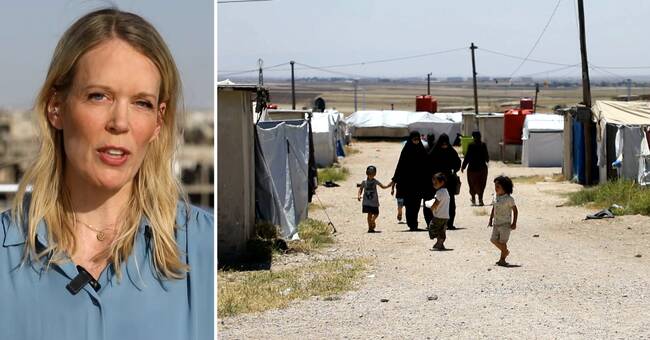Tens of thousands of men, women and children are in detention camps in northeastern Syria after the fall of IS about two years ago.
Of them, it is estimated that about twenty mothers and about thirty children are Swedes.
SVT's Middle East correspondent Stina Blomgren has visited camps in northeastern Syria and talks about an environment that can be harmful in many ways.
- There is a level of violence in these camps.
In Al-hol, more than 50 murders have taken place just since the beginning of the year.
Kurdish security forces recently carried out a major operation in the camp and found large quantities of weapons and explosives, but also teaching materials devoted to training children in IS ideology, says Blomgren in Morgonstudion.
The Kurdish autonomy, which set up the camps, aims to convict the women in trials, but the lawsuits have been postponed due to the pandemic.
Due to the situation in the camps, Sweden has been criticized by, among others, the UN, because it has not taken its citizens home.
Sweden's position is that women should be convicted on the spot in Syria, but many critics question why their children are not taken out of the camps.
Finland, for example, recently decided to bring home all children with Finnish citizenship.
- Representatives of the Swedish Ministry of Foreign Affairs have been on site here in the camps and offered the women to send their children to Sweden, but none of those we met have agreed to do so, says Stina Blomgren.

